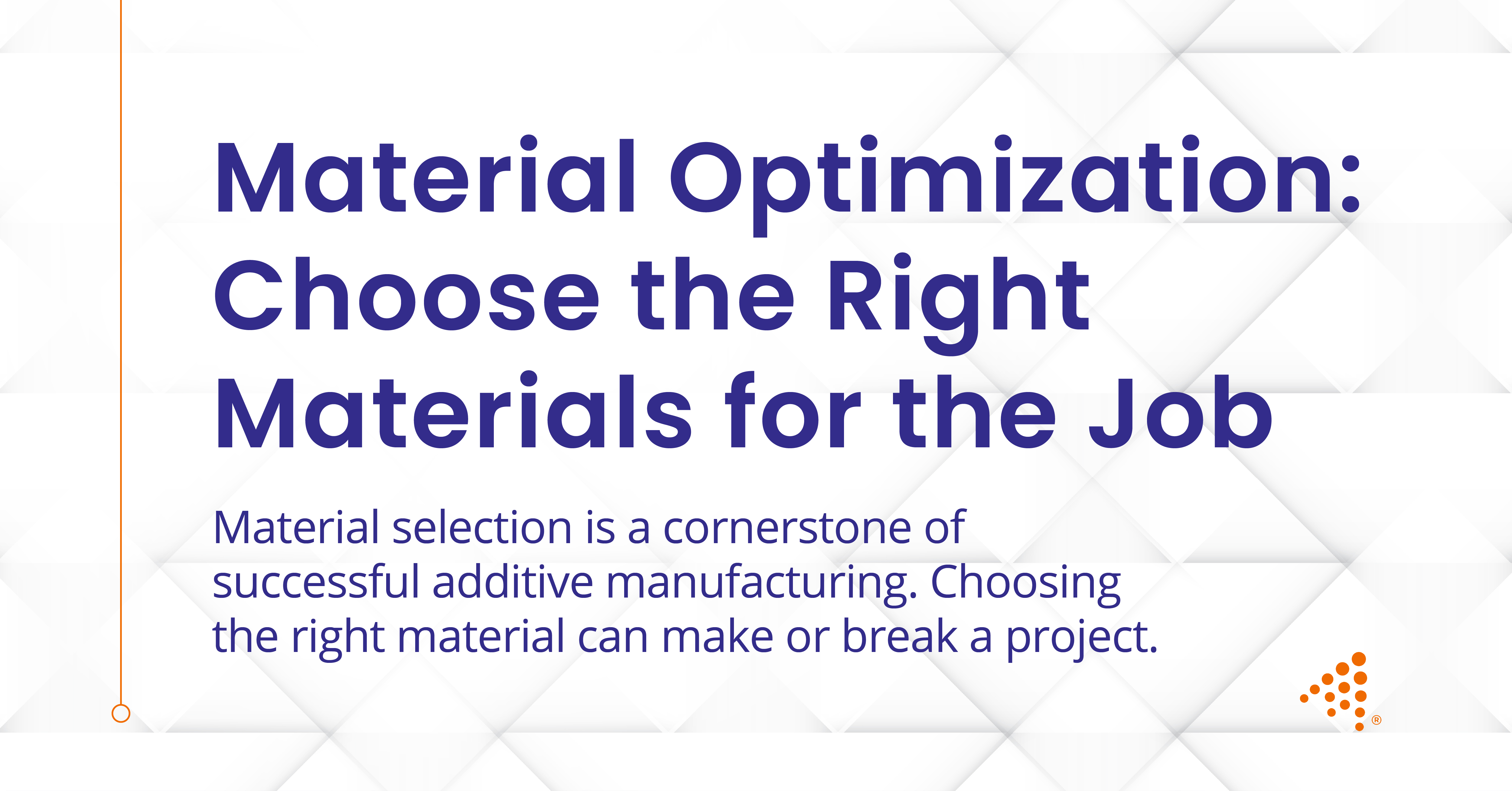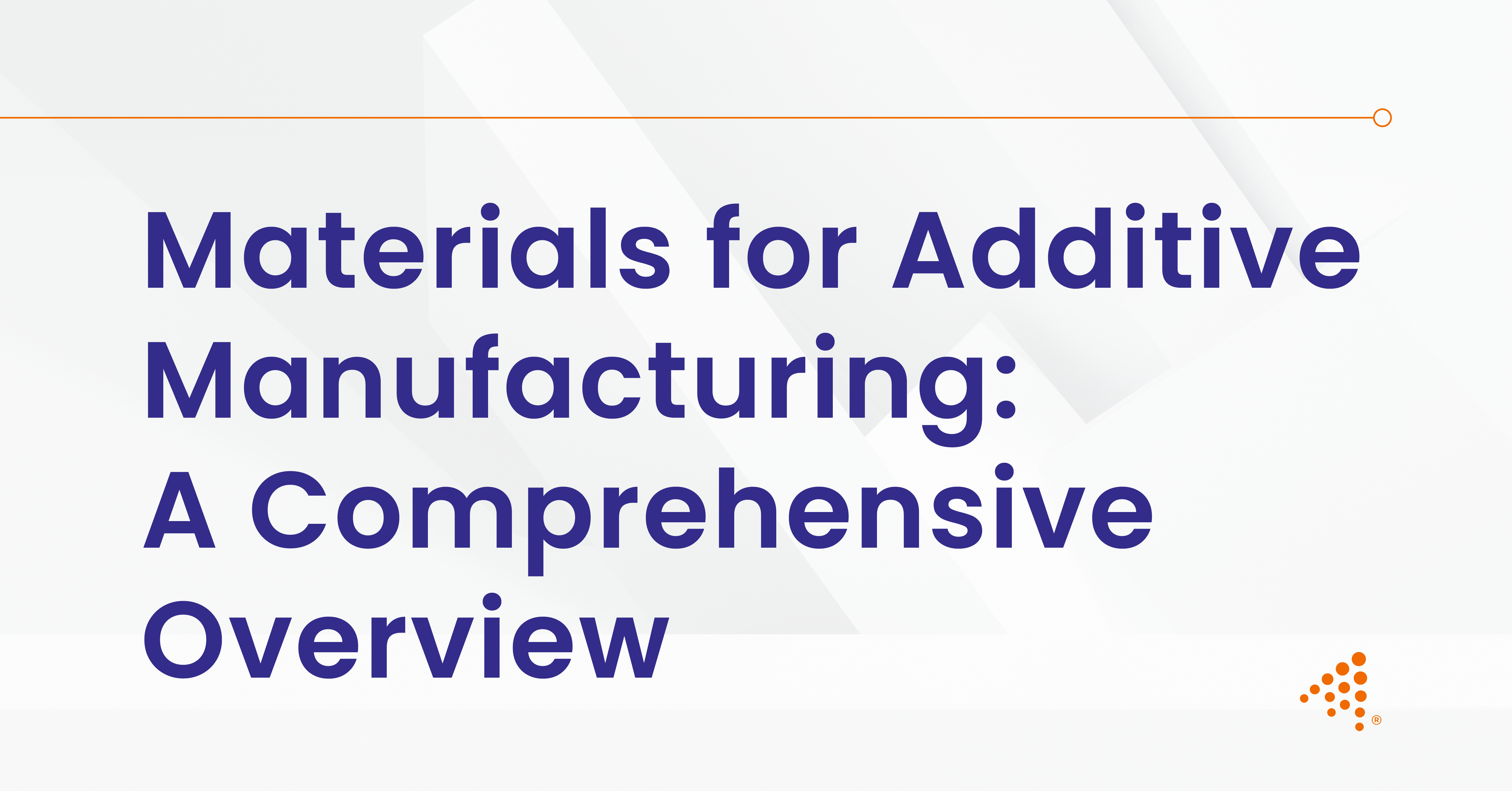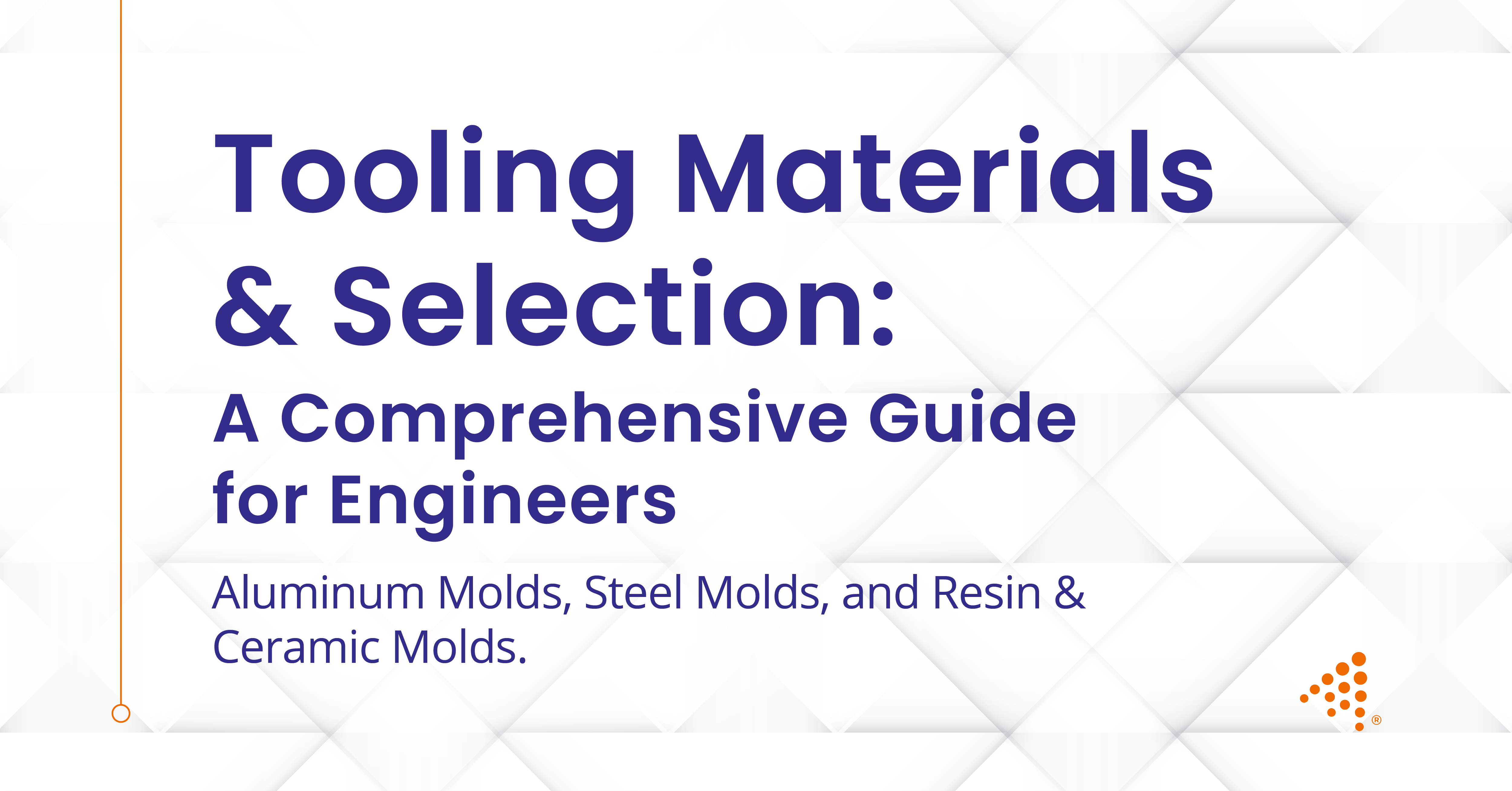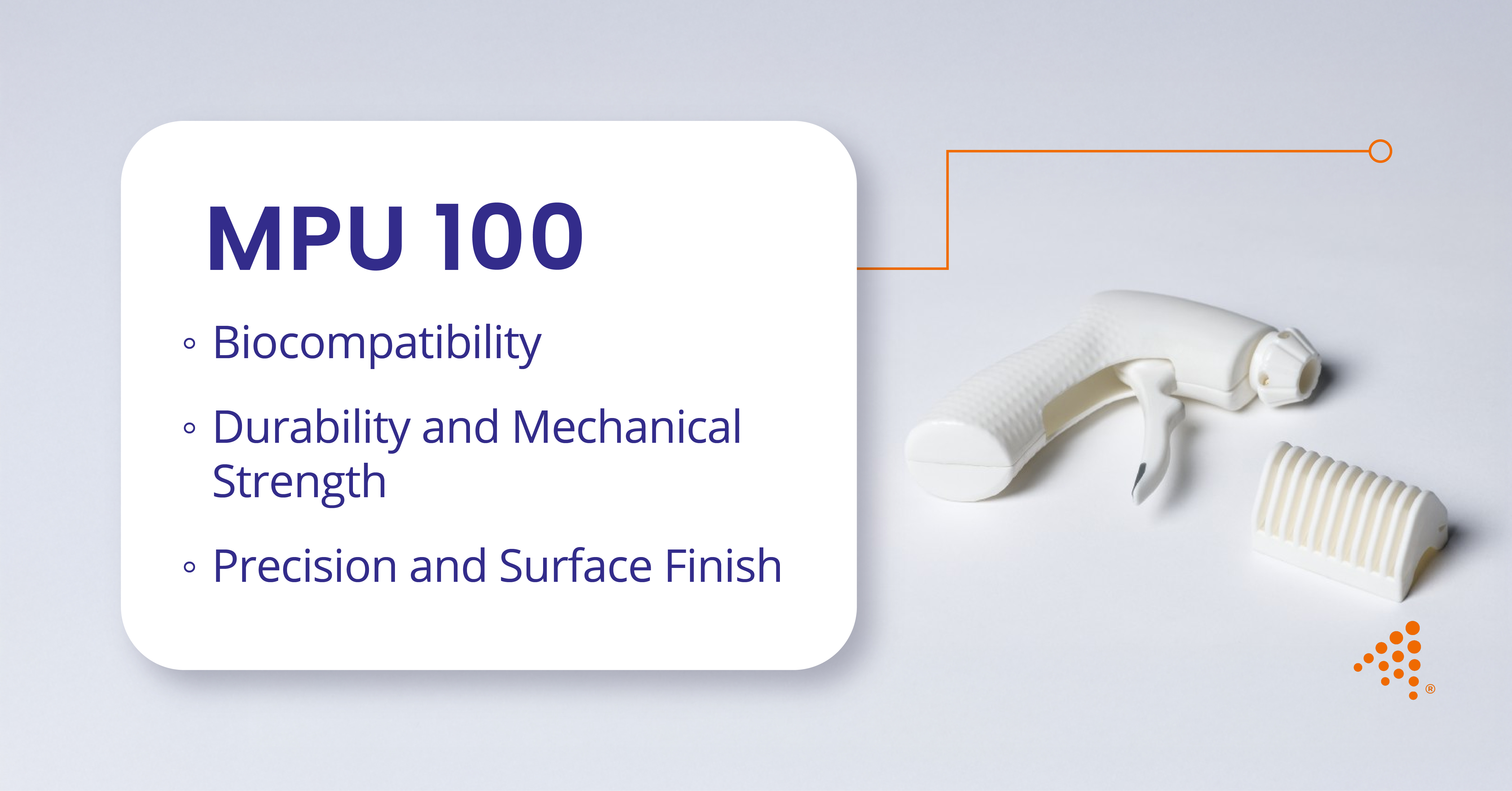Materials for Additive Manufacturing: A Comprehensive Overview
The remarkable rise of additive manufacturing is intrinsically linked to the expanding palette of materials available to engineers. The ability to...
3 min read
Nick Erickson : Oct 9, 2025 9:44:59 AM

The choice of material is a foundational decision that influences every subsequent stage of a project. It is a critical intersection of design, function, and manufacturing, where the right selection can unlock new levels of performance and the wrong one can lead to costly failures. For R&D engineers, material selection is not just about picking a plastic from a list; it is a strategic process of aligning a material’s inherent properties with the specific, demanding requirements of its intended application.
While additive manufacturing has opened the door to unprecedented design freedom, this freedom is only fully realized when paired with the right material. A brilliant design executed in an inappropriate material will fail. Therefore, understanding the nuances of the advanced polymers available today is essential for creating durable, compliant, and truly innovative products.
Before exploring any specific materials, a successful selection process begins with a thorough definition of the part's operational environment and functional demands. This goes beyond broad strokes like "strength" and delves into the specific conditions the component will face throughout its lifecycle.
What kind of forces will the part endure? Is it subject to a constant tensile load, intermittent high impacts, or cyclical vibrations that could lead to fatigue? A part designed for structural integrity, like a bracket or housing, will require a material with high tensile strength and stiffness. Conversely, a component meant to absorb shock, like a protective casing or a piece of cushioning, would need a material with high impact resistance and energy return.
Will the component be exposed to extreme heat or cold? Materials have a specific heat deflection temperature (HDT), above which they begin to deform under load. For injection molding tooling, aerospace applications, or automotive components, selecting a high-HDT material is non-negotiable.
What substances will the part come into contact with? A medical injection molding component may need to withstand repeated sterilization with aggressive chemicals like isopropyl alcohol or ethylene oxide. An industrial part might be exposed to oils, solvents, or UV radiation. Choosing a material with the appropriate chemical resistance is vital for preventing degradation and ensuring the longevity of the part.
For DFM for Medical Devices, there is no room for compromise. Materials must meet stringent regulatory standards set by bodies like the Food and Drug Administration (FDA). This often requires selecting polymers that are biocompatible, meaning they will not cause an adverse reaction when in contact with the human body. Furthermore, these materials must be able to withstand medically-approved sterilization methods without losing their mechanical properties.
Read More About Injection Molding Defects: Flash – What It Is and How to Get Rid of It
Modern additive manufacturing platforms, particularly Carbon DLS Prototyping, offer a portfolio of sophisticated resins engineered to meet these diverse requirements. These materials are not generic plastics; they are specialized formulations designed for specific performance characteristics, allowing engineers to move beyond prototyping and into true production.
For applications requiring durability and stiffness, families of Rigid Polyurethanes (RPU) and Epoxies (EPX) provide excellent strength, stiffness, and thermal resistance. For parts that need to bend and flex, Flexible Polyurethanes (FPU) offer superb fatigue resistance for applications like living hinges, while true Elastomeric Polyurethanes (EPU) provide the high elasticity and tear resistance needed for gaskets, seals, and comfortable wearable devices. For the most demanding applications, specialized materials like high-temperature Cyanate Esters (CE) or biocompatible Medical Polyurethanes (MPU) provide solutions tailored to specific industry needs.
While material data sheets provide invaluable quantitative information, the ultimate validation of a material choice comes from real-world testing. The nuances of a part's unique geometry combined with the specific stresses of its application can sometimes lead to outcomes that are difficult to predict solely from a spec sheet.
Rapid prototyping with the actual end-use material is a crucial step in the material optimization process. By creating functional prototypes using a technology like Carbon DLS, engineers can subject the parts to the actual thermal, mechanical, and chemical stresses they will face in their final application. This iterative loop of printing, testing, and refining allows for data-driven decisions, providing confidence that the selected material will perform flawlessly over the entire life of the product. It is the most effective way to mitigate risk and ensure the final product meets and exceeds all performance expectations.
Ready to optimize your additive manufacturing project?
Contact Aprios today to explore how our expertise can help you choose the perfect material for your next innovation.
Optimizing material selection is not just about meeting technical specifications, it’s about ensuring your product fulfills its purpose and delivers value. The right material enhances product performance, reduces the risk of failure, and builds trust with end users.
At Aprios, we specialize in helping R&D engineers and product designers navigate the complexities of material selection. Our experience with advanced resins and Design for Additive Manufacturing enables us to guide you toward solutions that meet your unique requirements.

The remarkable rise of additive manufacturing is intrinsically linked to the expanding palette of materials available to engineers. The ability to...

Selecting the right material for your injection mold tooling is a foundational decision that impacts project timelines, part quality, and overall...

Medical Polyurethane (MPU 100) is an engineering-grade material specifically developed to meet the rigorous demands of the medical industry. Utilized...